There are too few nonprofit organizations like CC fighting for the commons – support our vital leadership with an end of year contribution. Donate today!
Tag: EU
EU adopts landmark Artificial Intelligence Act
by Brigitte Vézina, Mark Foster Copyright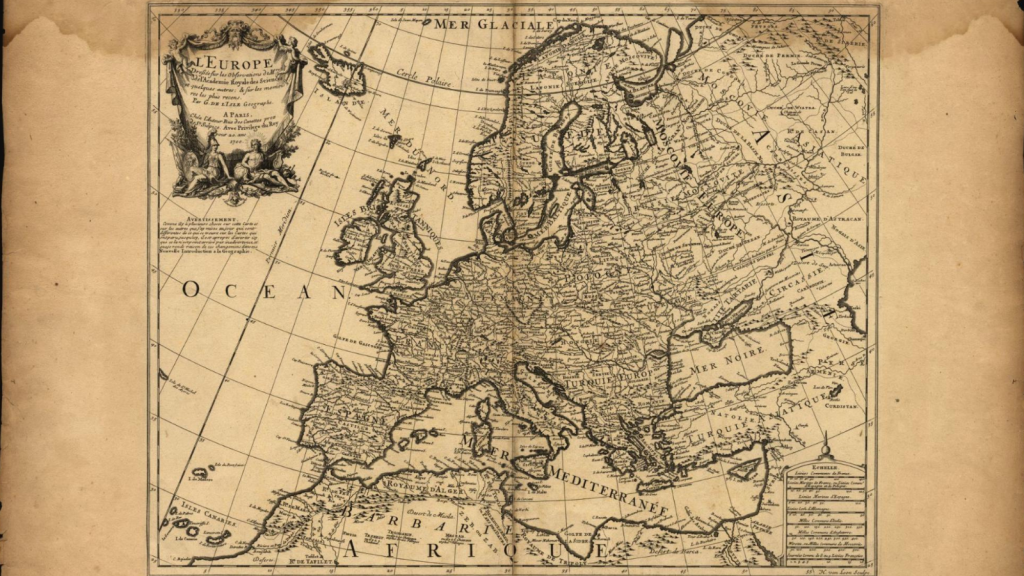 “L'Europe by Delisle” by
“L'Europe by Delisle” by
Creative Commons welcomes the adoption by the European Parliament of the EU’s Artificial Intelligence Act. We engaged intensively with EU policymakers to safeguard the appropriate interplay with EU copyright legislation. The EU must now ensure implementation allows broad, open access to harness the full potential of generative AI whilst enforcing the safeguards provided.
On Openness & Copyright, EU AI Act Final Version Appears to Include Promising Changes
by Creative Commons Better Internet, Policy
The EU’s political institutions announced that they have reached a tentative final agreement. While details are still not finalized and many questions remain regarding treatment of certain high-risk systems, the agreement appears promising relative to the recent Parliament text and from the perspective of supporting open source, open science, as well as on copyright.
CC and Communia Statement on Transparency in the EU AI Act
by Creative Commons Better Internet, Licenses & Tools, Open Culture, Open Knowledge, Technology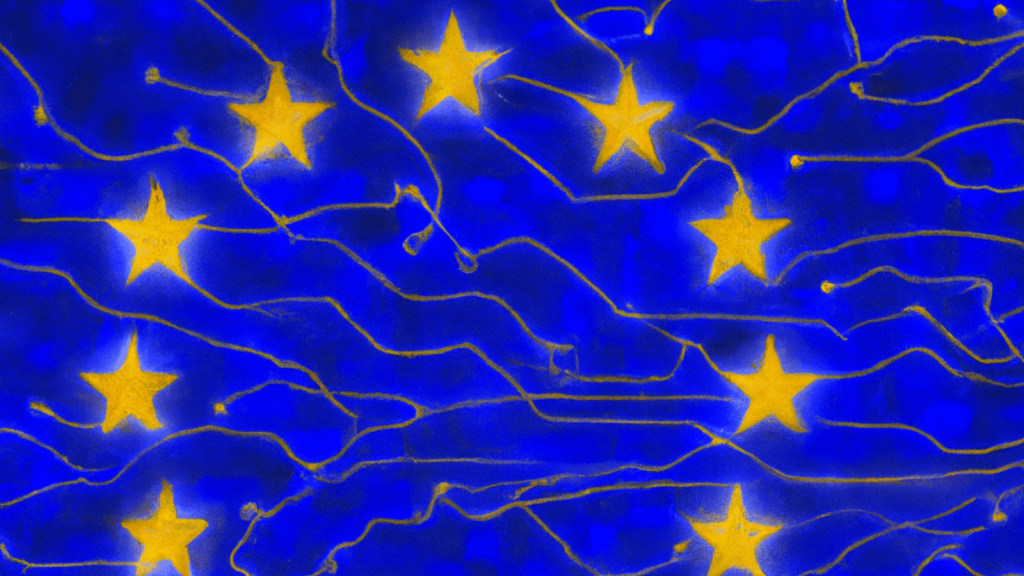 "EU Flag Neural Network" by Creative Commons was cropped from an image generated by the DALL-E 2 AI platform with the text prompt "European Union flag neural network." CC dedicates any rights it holds to the image to the public domain via CC0.
"EU Flag Neural Network" by Creative Commons was cropped from an image generated by the DALL-E 2 AI platform with the text prompt "European Union flag neural network." CC dedicates any rights it holds to the image to the public domain via CC0.
The European Union’s Artificial Intelligence Act will be discussed at a key trilogue meeting on 24 October 2023. CC collaborated with Communia to summarize our views emphasizing the importance of a balanced and tailored approach to regulating foundation models and of transparency in general.
Supporting Open Source and Open Science in the EU AI Act
by Creative Commons Better Internet "EU Flag Neural Network" by Creative Commons was cropped from an image generated by the DALL-E 2 AI platform with the text prompt "European Union flag neural network." CC dedicates any rights it holds to the image to the public domain via CC0.
"EU Flag Neural Network" by Creative Commons was cropped from an image generated by the DALL-E 2 AI platform with the text prompt "European Union flag neural network." CC dedicates any rights it holds to the image to the public domain via CC0.
As the EU seeks to finalize its landmark AI Act, CC has joined with Eleuther AI, GitHub, Hugging Face, LAION, and Open Future in offering suggestions for how the Act can better support open source and open science. As we’ve said before, we welcome the EU’s leadership on defining a regulatory framework around AI and…
CC Joins Key AI Panel in Brussels
by Creative Commons Copyright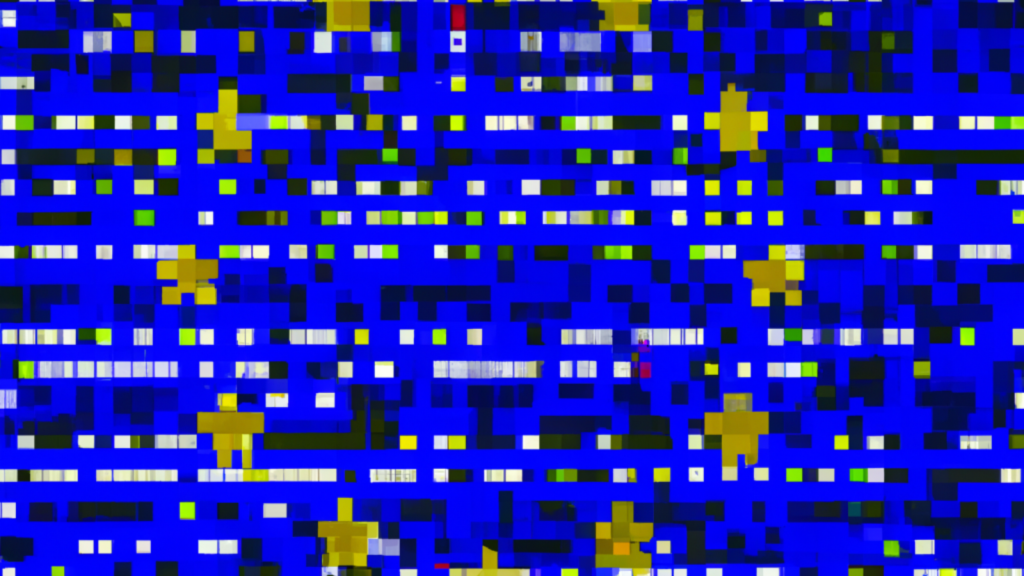 “EU Pixelated” by Creative Commons was cropped from an image generated by the DALL-E 2 AI platform with the text prompt “pixel art of computer code streaming across an EU flag.” CC dedicates any rights it holds to the image to the public domain via CC0.
“EU Pixelated” by Creative Commons was cropped from an image generated by the DALL-E 2 AI platform with the text prompt “pixel art of computer code streaming across an EU flag.” CC dedicates any rights it holds to the image to the public domain via CC0.
As a part of CC’s continuing engagement in policy to shape generative artificial intelligence (AI), Brigitte Vézina, our Director of Policy and Open Culture, participated in a June session hosted by the European Internet Forum: Generative AI, Art & copyright: from creative machines to human-powered tools. The panel was held in the framework of EU…
European Parliament Gives Green Light to AI Act, Moving EU Toward Finalizing the World’s Leading Regulation of AI
by Creative Commons Copyright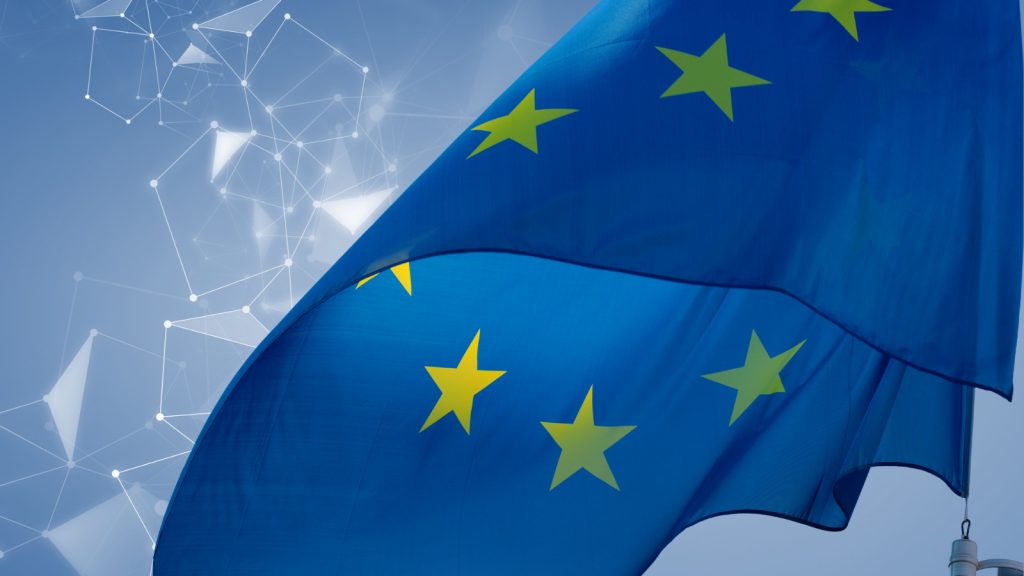
Today, the European Parliament (EP) adopted its position in plenary on the Artificial Intelligence (AI) Act. This is the culmination of a months-long process whereby thousands of pages of amended text have been pored over by policymakers, civil society and industry alike. The strong, cross-party endorsement (499 votes in favor, 28 against and 93 abstentions)…
Knowledge & Cultural Institutions Defend Net Neutrality in EU
by Creative Commons Copyright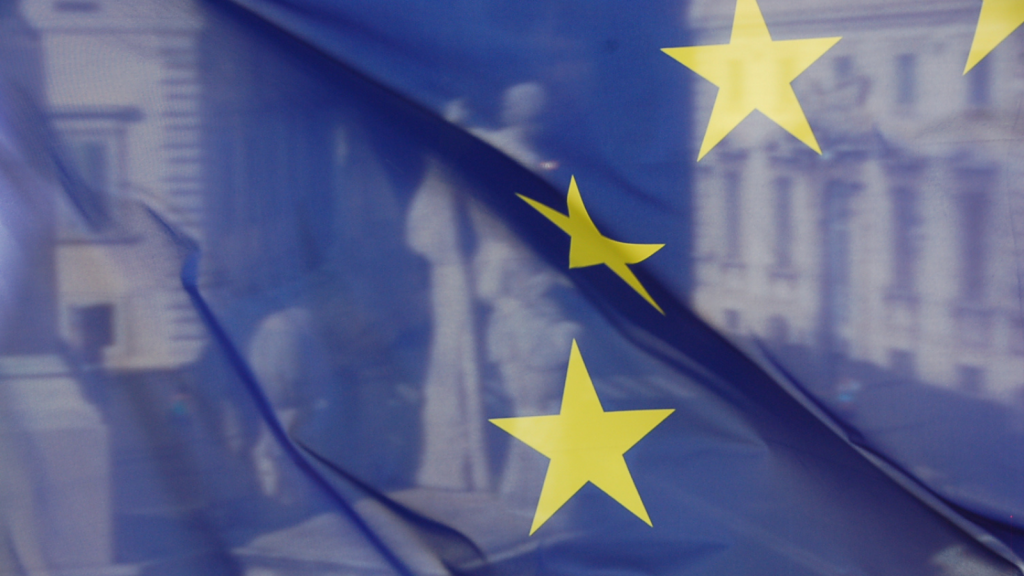
"The EU Flag and Castor and Pollux" by waldopics is licensed under CC BY 2.0 .
Earlier this year, the European Commission started a new consultation on “The future of the electronic communications sector and its infrastructure.” On the one hand, it’s good that policymakers are examining how to expand broadband access and ensure the capacity of networks continues to expand and support helpful innovation. On the other hand, the consultation…
As European Council Adopts AI Act Position, Questions Remain on GPAI
by Creative Commons Copyright "EU Flag Neural Network" by Creative Commons was cropped from an image generated by the DALL-E 2 AI platform with the text prompt "European Union flag neural network." CC dedicates any rights it holds to the image to the public domain via CC0.
"EU Flag Neural Network" by Creative Commons was cropped from an image generated by the DALL-E 2 AI platform with the text prompt "European Union flag neural network." CC dedicates any rights it holds to the image to the public domain via CC0.
As we’ve discussed before, the European Union has been considering a new AI Act, which would regulate certain uses of artificial intelligence (AI). In particular, it seeks to ban certain uses of AI, such as broad-based real-time biometric identification for law enforcement in public places, and to ensure that certain precautions are taken before deployment…
CC’s Engagement on the EU Data Act
by Creative Commons Copyright “EU Pixelated” by Creative Commons was cropped from an image generated by the DALL-E 2 AI platform with the text prompt “pixel art of computer code streaming across an EU flag.” CC dedicates any rights it holds to the image to the public domain via CC0.
“EU Pixelated” by Creative Commons was cropped from an image generated by the DALL-E 2 AI platform with the text prompt “pixel art of computer code streaming across an EU flag.” CC dedicates any rights it holds to the image to the public domain via CC0.
Recently, we provided an update on Creative Common’s engagement on the European Union’s draft Artificial Intelligence Act. We’ve also worked with policymakers and other stakeholders on another flagship EU legislative file — the draft Data Act. The European Commission published the Data Act proposal earlier this year, as a continuation of its EU’s overall data…
CC’s Engagement on EU’s Artificial Intelligence Act
by Creative Commons Copyright "EU Flag Neural Network" by Creative Commons was cropped from an image generated by the DALL-E 2 AI platform with the text prompt "European Union flag neural network." CC dedicates any rights it holds to the image to the public domain via CC0.
"EU Flag Neural Network" by Creative Commons was cropped from an image generated by the DALL-E 2 AI platform with the text prompt "European Union flag neural network." CC dedicates any rights it holds to the image to the public domain via CC0.
Beginning in 2021, the European Union has been considering a new AI Act, which would regulate certain uses of AI. In particular, it seeks to ban certain uses of AI, such as broad-based real-time biometric identification for law enforcement in public places, and it seeks to ensure that certain precautions are taken before deployment of…